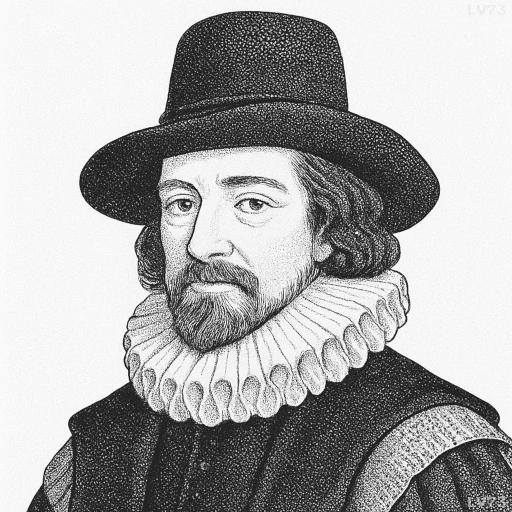“Truth is so hard to tell, it sometimes needs fiction to make it plausible.”

- January 22, 1561 – April 9, 1626
- Born in England
- Philosopher, theologian, jurist, politician, aristocrat
table of contents
Quote
“Truth is so hard to tell, it sometimes needs fiction to make it plausible.”
Explanation
In this quote, Francis Bacon reflects on the complex nature of truth and how, at times, it can be so difficult to accept or understand that it requires a bit of fiction or embellishment to make it more believable or plausible. Bacon suggests that truth, when presented in its raw form, can seem too harsh, abstract, or incomprehensible, and in these cases, stories or narratives may be used to make it more relatable or easier for people to digest. This could be a comment on the way truth is often framed or conveyed to others—sometimes through metaphor, analogy, or fiction—in order to make it more acceptable or convincing. Bacon is recognizing the challenge of presenting absolute truths, especially in a way that is easily understood by others.
Bacon’s perspective aligns with the Renaissance fascination with the human experience and the tension between objectivity and subjectivity in storytelling, art, and intellectual discourse. During this period, writers, philosophers, and artists were exploring new ways to communicate complex ideas, often recognizing that literal truth might not always be the most effective way to reach people. Instead, fiction or allegory could be used to highlight deeper truths about the human condition, society, or morality.
In modern times, this quote resonates with the role of storytelling in conveying truth, especially in the context of literature, media, and politics. Often, facts alone do not reach people in an emotional or persuasive way. Fiction—whether in the form of metaphors, films, or fictional narratives—is often used to communicate deeper truths about society, human nature, or the world. For example, novels and movies can reveal social realities or psychological truths in ways that direct, factual accounts might not. Bacon’s insight speaks to the power of narrative and suggests that fiction can be a tool for revealing truths that are not always easily expressed through direct language or reasoning.
Would you like to share your impressions or related stories about this quote in the comments section?

